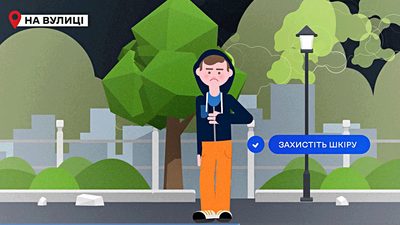-
Our work
-
Fields of work
- Arms control
- Border management
- Combating trafficking in human beings
- Conflict prevention and resolution
- Countering terrorism
- Cyber/ICT Security
- Democratization
- Economic activities
- Education
- Elections
- Environmental activities
- Gender equality
- Good governance
- Human rights
- Media freedom and development
- Migration
- National minority issues
- Policing
- Reform and co-operation in the security sector
- Roma and Sinti
- Rule of law
- Tolerance and non-discrimination
- Youth
- Field operations
- Projects
-
Meetings and conferences
- Summit meetings
- Review Conferences
- Ministerial Council meetings
- Plenary meetings of the Permanent Council
- Plenary Meetings of the Forum for Security Co-operation
- Security Review Conferences
- Annual Implementation Assessment Meetings
- Economic and Environmental Forum
- Economic and Environmental Dimension Implementation Meetings
- Human rights meetings
- Media conferences
- Cyber/ICT security conferences
- Conference of the Alliance against Trafficking in Persons
- Gender equality conferences
- Annual OSCE Mediterranean conferences
- Annual OSCE Asian conferences
- Partnerships
-
Fields of work
-
Countries
- All
-
Participating States
- Albania
- Andorra
- Armenia
- Austria
- Azerbaijan
- Belgium
- Belarus
- Bosnia and Herzegovina
- Bulgaria
- Canada
- Croatia
- Cyprus
- Czechia
- Denmark
- Estonia
- Finland
- France
- Georgia
- Germany
- Greece
- Holy See
- Hungary
- Iceland
- Ireland
- Italy
- Kazakhstan
- Kyrgyzstan
- Latvia
- Liechtenstein
- Lithuania
- Luxembourg
- Malta
- Moldova
- Monaco
- Mongolia
- Montenegro
- The Netherlands
- North Macedonia
- Norway
- Poland
- Portugal
- Romania
- Russian Federation
- San Marino
- Serbia
- Slovakia
- Slovenia
- Spain
- Sweden
- Switzerland – OSCE Chairpersonship 2026
- Tajikistan
- Türkiye
- Turkmenistan
- Ukraine
- United Kingdom
- United States of America
- Uzbekistan
- Asian Partners for Co-operation
- Mediterranean Partners for Co-operation
-
Structures and institutions
- Chairpersonship
-
Secretariat
- Secretary General
- Office of the Secretary General
- Conflict Prevention Centre
- Transnational Threats Department
- Office of the Special Representative and Co-ordinator for Combating Trafficking in Human Beings
- Office of the Co-ordinator of OSCE Economic and Environmental Activities
- Gender Issues Programme
- Opportunities for Youth
- Department of Human Resources
- Department of Management and Finance
- Office of Internal Oversight
- Documentation Centre in Prague
- Institutions
-
Field operations
- Presence in Albania
- Centre in Ashgabat
- Programme Office in Astana
- Programme Office in Bishkek
- Mission to Bosnia and Herzegovina
- Programme Office in Dushanbe
- Mission in Kosovo
- Mission to Moldova
- Mission to Montenegro
- Mission to Serbia
- Mission to Skopje
- Project Co-ordinator in Uzbekistan
- Closed field activities
- Parliamentary Assembly
- Court of Conciliation and Arbitration
- Organizational structure
- About us
News Item
OSCE equips Ukraine’s emergency service with materials for chemical security risk education
As the ongoing war against Ukraine causes damage to industrial facilities across the country, it heightens the risks of release of toxic chemicals, posing a serious danger for people and environment. To help diminish threats to health and lives of people, the OSCE Secretariat Extra-Budgetary Support Programme for Ukraine (the SPU) produced and delivered to the country’s State Emergency Service (the SESU) the awareness-raising materials, designed to inform the public about safety rules for chemical emergencies.

- Issued on:
- Issued by:
- OSCE Secretariat Extra-Budgetary Support Programme for Ukraine
- Fields of work:
- Environmental activities
As the ongoing war against Ukraine causes damage to industrial facilities across the country, it heightens the risks of release of toxic chemicals, posing a serious danger for people and environment. To help diminish threats to health and lives of people, the OSCE Secretariat Extra-Budgetary Support Programme for Ukraine (the SPU) produced and delivered to the country’s State Emergency Service (the SESU) the awareness-raising materials, designed to inform the public about safety rules for chemical emergencies.
These materials include a 4-minute educational cartoon “Chemical Emergency – Safety Rules”, that explains signs of such situation, including symptoms of impact of chemicals on health, outlines rules of safe behavior in a variety of situations where chemical threats can materialize. This cartoon can be used during awareness-raising outreach events, organized by the Service for people leaving in high risk areas, e.g. near industrial facilities. It is accompanied by a short version on signs of a chemical emergency, as well as four clips with safety rules for when people can be caught in such a disaster, notably outdoors, in the premises - at home or in the office, while driving. These materials can be instrumental for social media and outreach for specific audiences; they are available at the OSCE website and SESU resource “Safety ABC”.
In addition, the SPU updated designs of leaflets on dangers posed by most widespread industrial chemicals and produced a handy brochure with safety rules in case of emergencies with ammonia, nitric acid, chlorine and mercury. A brochure and two types of posters on dangers posed by chemical weapons were also developed for civil defense lessons. The State Emergency Service received in total 11,000 print copies of these publications; they were dispatched to regional offices of the SESU for distribution. Digital copies of print materials can be found here.
This effort is part of the “Enhancing Ukraine’s Chemical Emergency Response Capacity” project, implemented by the OSCE Secretariat Extra-Budgetary Support Programme for Ukraine with financial contributions from the Organization's participating States; see full list of the Programme's donors.